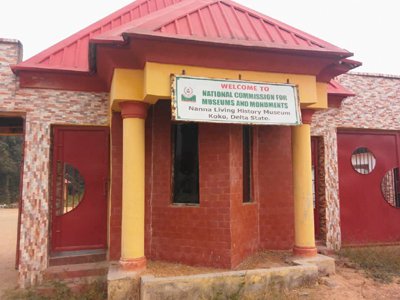
Nanna Olomu’s operational base was Ebrohimi, which his father founded about 1860 on leaving the ancestral base at Jakpa when he felt unable again to endure his disenchantment with life in Jakpa, which was dominated by Governor Idiare, his cousin. Ebrohimi was founded by Nanna’s father, Olomu. It was built like most Itsekiri towns in a reclaimed site after clearing away all mangroves trees.
In this atmosphere of a rich inheritance, noble birth, position, immense wealth, power and pervading influence, from Ebrohimi, Nanna Olomu launched himself into his future that was to immortalise him. Here, Nanna with care and persistence, built, spread and consolidated into vast commercial empire to the adjoining Itsekiri nations and hinterland of the Urhobo by trade, force, pacification and diplomacy.
His birth and early days
(1840-1916)
The Itsekiri society of the 19th Century was a glittering, noble and affluent one, having enriched itself, its institutions and culture, with a well harnessed harvest of its earlier contact with the Europeans missionaries and traders.
Nanna was born into the sophisticated well manned society about 1840 with a silver spoon in his mouth to Olomu.
Nanna had patrilineal and matrilineal connections in both Itsekiri gentry and its nobility respectively. His father Olomu, was the 10th Olu of Warri, who reigned from 1674-1701. His grandmother, Iweroko, a lady of substance and virtue, was one of the two daughters among the 10 children of Ologbotsere Eyinmi Sanren of Egjorogbin quarters in Ode-Itsekiri.
Nanna was of the 106 children (53 male and 53 females, 59 wives), himself was a polygamist and 40 children (26 sons and 14 daughters) the last of his children, a daughter, Dora Melise was born in August 1914, eight years to the day Nanna set his foot on Koko soil from 12 years of exile from his beloved land, two years in Calabar and 10years in Accra.
Nanna’s mantle of leadership
The young Nanna spent some years at the foot stool of his grandmother, Iweroko. He quickly exhibited noticeable signs of his genius, character, and enterprise. His father, noticing these sterling qualities himself, soon drafted him to serve in his war – canoe, first as a paddler and later as one of his own body guards.
He helped his father during his many wars against other small and great unfriendly chiefs. His performances during the Eku war, he was promoted to a commander and was given his own war canoe. During the Eku war, his father made him commander general from 1872 until his father’s death in 1883 he held this exalted position of protector that is deputy to his father.
The mantle of leadership of the Itesekiri fell on Nanna on 1884 after the demise of his father, Olomu, without any effective or strong opposition from his peers in the land, his appointment was accepted and confirmed by the British (Gofune) of the Benin River of the Bight of Benin.
In 1885 Nanna was installed into the consul area by her Majesty, David Boyle Blair. At the ceremony, the silver headed stick embossed with the British royal coat of arms, which was the symbol of authority, was handed over to Nanna.
In the aftermath of the collision course between Nanna and the British arrogant British consul named George Annestey, broke his staff into two and threw one half of it into the Benin River. Reason been that he had been in the Benin River for seven days and ignored by Nanna by committing the diplomatic snobbery of not paying him his respect as Governor of Benin River.
So, from that incident in 1890 and in spite of Nanna’s protest to the marquis of Salisbury, a senior British foreign official, he lost his position as a governor of Benin River, only holding on it as an Itsekiri institutions to which in the first place, he had been appointed by the Itsekiri. The establishment in 1891 by the British government of the Niger coast protectorate government, covering most of the area along the Bights of Benin (Nanna’s trading empire), Nanna’s greatness and dominance in the area, British imperialism had arrived and was being entrenched.
Prior to these incidents (which closed a memorable chapter in Itsekiri history), Nanna had performed his duties as Governor of Benin River highly creditably. His father was the wealthiest, most powerful and most influential merchant chief in Itsekiri land. Nanna inherited his entire father’s fortunes large, expensive, commercial empire, worked assiduously to harness, multiply and maximise them.
He was not his father’s eldest son, but he had been strongly built up by his father that all his elder brothers accepted his new leadership role.
The Ebrohimi War of 1894
The imminent war between the British and Nanna soon dawned. It all started firstly, in a lower scale with the creation of the Niger Coast Protectorate in 1891, whose authority embraced most of the areas along the Bights of Benin and Biafra. The arrangement was to impose direct British rule over the Delta territory and therefore, remove the power from the African chiefs in the area, including Nanna.
Subsequently, on this development, some of the European traders, especially James Pinnock, the Miller Brothers among others, gave more injury to their subsisting hatred of Nanna’s commercial power and wrote several orchestrated petitions to the Liverpool Chamber of Commerce to dig in firmly with its new policy to penetrate into the hinterland beyond Nanna’s trading areas through the establishment of their own trade links through constabulary stations and vice consulates.
Due to Nanna’s resistance of the British government role of exploitation of the Niger Delta area, the British planned to fight Nanna, to remove him, first found distant, but direct relations in faraway places. First, the British troops sacked and burnt down the town of Bobbi on the right bank of the Benin River where an Ijaw, Chief Deah, one of Nanna’s loyal supporters, dared to resist them. Nanna’s supply town on the Warri River, was destroyed, but not without some strong resistance put up by Nanna’s men there. All these skirmishes took place in the first two weeks of August 1894. The hand writing was clearly visible on the wall and Nanna immediately prepared the defense of his town, Ebrohimi.
Available records revealed that it was a full scale war waged on Ebrohimi from three fronts left, centre and right with clearly written out instructions and orders and command under the directions of Real-Admiral Bedford. The Ebrohimi war started effectively in the early morning of August 26, 1894.
The war dragged on for three months. Ebrohimi finally fell to the British after the strong resistance by Nanna and his men to defend his father land.
At 9:00 am on September 25, 1894, Ebrohimi was raided, burnt down and that marked the fall of Ebrohimi in the war between Nanna/the British in 1894.
Nanna, of course, had dispersed his family in different escape directions while he escaped in his loaded canoe through a secret carnal at the back of the town, which opened in to the nearby Adagbrassa creek. When the abandoned canoe was found by invading force on the morning of September 28, 1894 it only contained Nanna’s paper and documents. Nanna had out-smarted them and escaped to the Ijaw of Ekotogbo, heading Lagos. They caught up with some of his war generals, including his younger brothers, who were arrested, later tried and sentence to various forms of punishment.
As for Nanna himself, he managed to get to Lagos and went straight to the house of his Yoruba friend of many years. Mr. Seidu Olowu. Ralph Moor returned with flaming vengeance to Ebrohimi on October 8, 1894 and caused the whole town and what was left of it to be burnt. Moor had issued a proclamation declaring Nanna a wanted man and put a heavy price of five hundred pounds sterling on his head for his recapture.
Mr. Seidu Olowu temporarily rehabilitated the now fugitive Nanna and his fellow escapees and then wrote a petition for clemency on behalf of Nanna to the Governor of Lagos Colony.
Nanna later established contact with his English bosom friend of many years. Mr. George William Neville. Neville was the founder Manager of the Bank of British West African (BBWA) in that same 1894 in Lagos. The bank later metamorphosed into First Bank of Nigeria Plc, which was co-founded by Nanna.
So, the great and renowned Nanna, Governor of Benin River and Merchant prince of the Niger, now defeated and completely humiliated by all his foes, found himself in another life. As the Governor of Lagos had no jurisdiction, according to the British administrative arrangements and law in force to try him, he was handed over to the British consular court with headquarters in old Calabar.
On his way from Lagos to Calabar, the boat stopped briefly in Benin River on November 8, 1894 for Nanna to pass through an identification parade, Itsekiris were stummed and deeply heartbroken to see their hero broken, un-kept and in chains, many were in tears, shaking their heads in sorrow.
Nanna was later charged for waging a war to fight the Government of her Majesty the Queen, in the Niger Coast Protectorate so as to avoid complying with the terms of treaty of July 16, 1884, that he obstructed British Consular officers in the discharge of their duties, that he committed a breach of the peace in the Benin District of the Niger Coast Protectorate.
Unfortunately, no legal defense required by the British law was provided for Nanna in this trial, which was nothing near fair or just. Nanna was found guilty, he was first detained there in old Calabar prison and two years later on the investigation of Ralph Moor, who still thought that he had not got his full pounds of flesh, Nanna was deported further away from home to Accra, capital of the then old Gold Coast to Christian Bong Castle, for life.
Effects of Nanna’s fall
And so Nanna, the Giant Iroko tree, fell just like especially, King Jaja of Opobo, who was only seven years earlier been similarly banished by the British. The Itsekiris broke up into two camps as Nanna was very popular among them. When his properties were offered for sale, they refused to buy them. A lot had been looted long before now. Peace eluded Itsekiri land for a long time after Nanna’s departure from the scene. In 1897, a civil war threatened the whole of the Benin River area, social and societal attendant confusions were felt even in non Itsekiri areas, prominent among them being the forcible entry into Benin City, against the Oba’s wishes, of acting Consul-General Philips, which resulted into the Benin massacre and expedition of 1897.
The effects of Nanna’s fall without argument, hit the Olomu and Nanna families. It was an ugly tragedy of the century. Nanna’s own immediate family never returned to settle again in Ebrohimi after the total destruction of the land.
Nanna in exile in Accra
Nanna began the second period of his exile from home in 1896 in Accra, capital of the old Gold Coast. Nanna lived a quiet, but more determined life in Accra, never allowed his circumstances to affect him. His bosom friend, George Neville, at this point upon his return to England on retirement in 1899, kept close contact with Nanna in Accra.
Together with Nanna, himself and his friends they wrote petitions for clemency for the release of Nanna to the colonial office, with lobbies and committees of the Liverpool Chamber of Commerce, host of other groups. All his goods and properties had been sold, confisticated, with part of the proceed by the British government to settle for the costs of the Ebrohimi/British War. Nanna, undaunted, carried on with his life well, his wife, Mammie, whom he took with him to exile, had three children for him in Accra.
An enlightened man, Nanna sooner than expected, thought about giving his children education. In 1900, he sent for 12 of his children and nephews, who were 10years and above to join him in Accra for specific purpose, Western Education. He also encouraged them in skill and technical development, especially Carpentry. While in Accra, Nanna embraced Christianity and one of his sons was also baptised.
Nanna’s return home (Koko)
When it was very clear that he was going to be pardoned and released to return home, Nanna dispatched messages to all his relatives back home in Nigeria to assemble and make preparations for the big return. There was jubilation in the land of Itsekiri, the Urhobo clans of Agbarho, Agbon and Effurun were equally in high spirit to receive him.
Delegates came from almost all families and communities in Itsekiri land to welcome Nanna back home from exile. Gifts of cow and bulls were delivered to him as part of the welcome. Many slaves freed by the British returned to live with him and serve him upon his return.
The large ground to welcome him was triggered off triumphantly early that morning on August 8, 1906. New America, as Koko was known then, was not developed and populous as it is today.
After Nanna had settled down, he began to plan and build the town around one mile square piece of land surveyed and mapped out forms of settlement. With his craftsmen sons, relative and others, he began in 1907 the direct labour construction of his own residence, which was then known as Nanna’s palace, today taken over as Nanna’s Living History Museum, Koko.
- Onime is Curator, Nanna Living History Museum, Koko.
Onime
Nanna recaptured the memory of Ebrohimi in his new town; the palace was completed in 1910 on precompacted soil in a manner befitting his status of a wealthy and influential Itsekiri man, who is the head of a large and growing family. He is reported to have dedicated it to his father, Olomu, as a replica of his house destroyed in the British/Nanna Ebrohimi War of 1894.
Nanna’s palace is approached by long, straight, well compacted and wide, well kept road at the top of which it stands majestically, reviving and ensuring the survival of Ebrohimi. Nanna encouraged his children and relatives to build their own residences on both sides of the wide road observing a definite well recessed building.
One remarkable aspect of Nanna’s palace is that it was built with local materials loamy soil mud, good quality mangrove posts. The original building has gone through some restorative and preservative work. The thatched roof, for example was changed to corrugated iron sheets in 1929. The Nanna palace became a National Monument in 1979, but was officially declared a National Commission for Museums and Monuments on September 2, 1990.
It is authoritatively said that among Nanna contemporaries, like Jaja of Opobo, Kosoko of Lagos, Oba Ovonranwen of Benin, Atahiru of Sokoto etc., only Nanna’s treasures, artifacts and documents are intact in one piece. Also, while others never had the opportunity to return home or released to die and be buried at home, Nanna was the only one, who went into detention, released and gloriously died and buried in his land in 1916.
Onime is Curator, Nanna Living History Museum, Koko.
You may be interested

AFCON 2025Q: New Boy Osho, Iheanacho, Start For Super Eagles Vs Benin Republic
Webby - November 14, 2024The Super Eagles will line-up in a 3-4-3 formation in tonight’s 2025 Africa Cup of Nations qualifying tie against Benin…

My Goal Was To Achieve Success With Ten Hag At Man United –De Ligt
Webby - November 14, 2024Netherlands international Matthijs de Ligt has suggested Erik ten Hag didn’t get the breaks he needed to keep his job…

I Want To Take My Game To New Level –Lookman
Webby - November 13, 2024Super Eagles winger Ademola Lookman has reiterated his commitment to take his game to the next level.The Nigerian international, who…







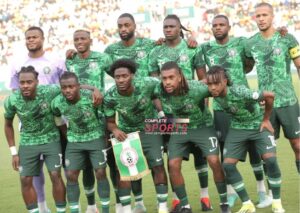

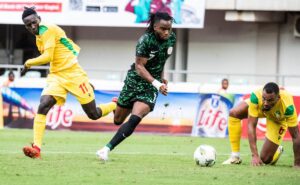
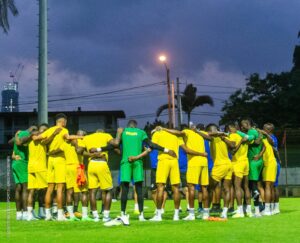




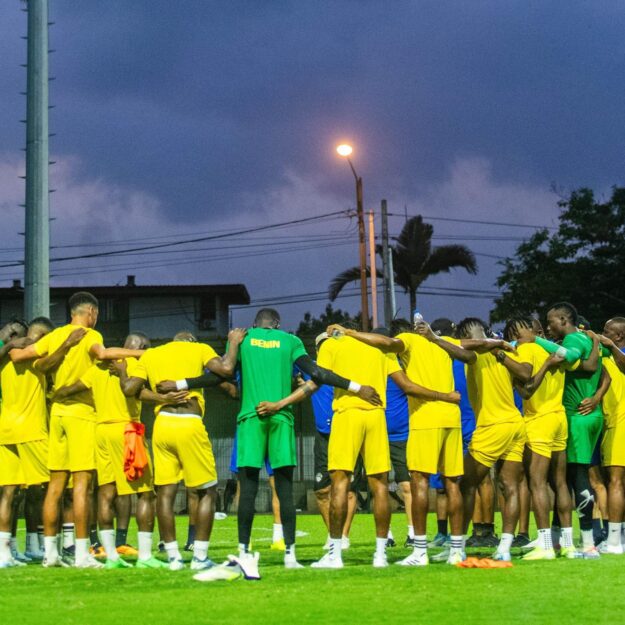







![American Pastor, David Wilson Seen Eating The Box Of Woman Who Isn’t His Wife [Video]](https://onlinenigeria.com/wp-content/uploads/2019/10/american-pastor-david-wilson-seen-eating-the-box-of-woman-who-isnt-his-wife-video-150x150.jpg)









